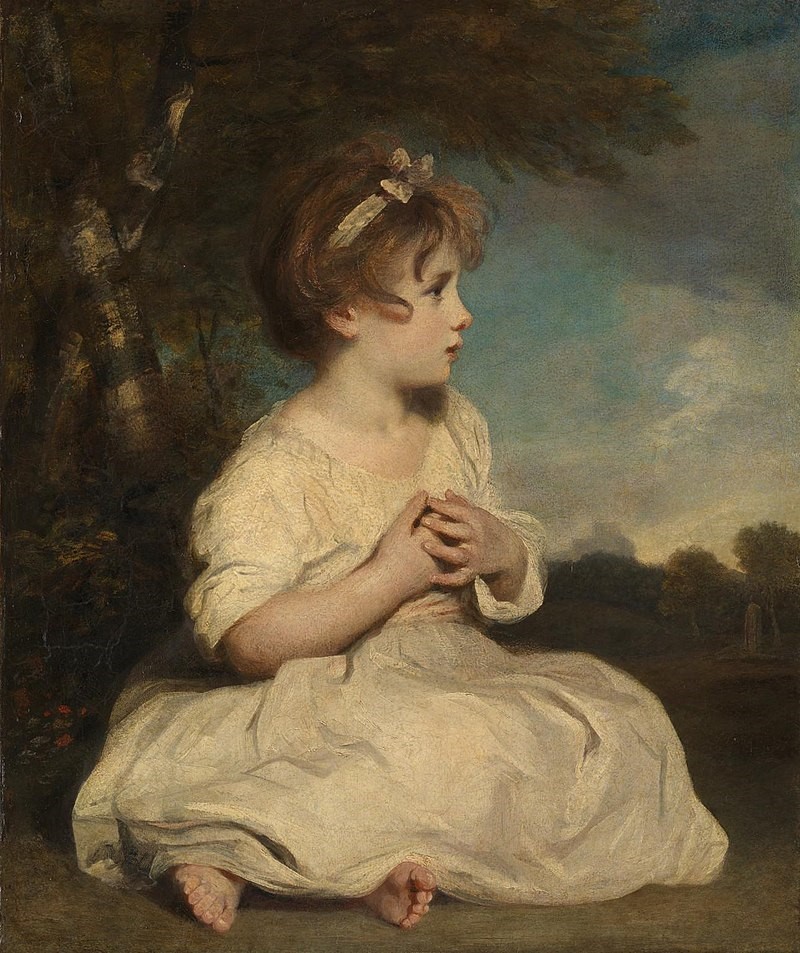Thank you, EM IL, for this intriguing question.
The first thing we must ask is, what is innocence? We can answer this question by thinking about the attributes possessed by paradigmatically innocent creatures, such as puppies or newborn babies. It seems to me that when we call such creatures innocent, we are primarily remarking upon the absence of certain cognitive, emotional, and motivational elements in their psychology. First, we think of innocent creatures as unaware of the morally bad emotions, desires, and actions of others. Innocent creatures do not believe that others have malicious intentions, for example. Second, we think that innocent creatures do not themselves experience such morally bad emotions and desires. For example, innocent creatures do not have malicious intentions, do not hate, are not resentful, and so forth. Consequently, we also do not think they perform morally bad actions, except perhaps out of non-culpable ignorance.
So, the question, “is innocence bliss?”, can be more precisely phrased as the question, “does the absence of morally bad desires and emotions, together with ignorance about the morally bad desires and emotions of others, generally cause us to experience a high level of subjective delight?” I use the word “generally” because, while it would be foolish to deny that innocence (and really, any psychological state) might occasionally cause bliss in some human beings, questions like this one are more often understood to be asking whether innocence is a good general strategy for most human beings to achieve happiness. Finally, notice that since innocence involves a kind of ignorance, this question is somewhat similar to the question, “is ignorance bliss?” (on which Daryl Tyrer has already written an Armchair Opinion).
Aristotle believed that the exercise of moral virtue is invariably accompanied by some degree of pleasure. Arguably, the exercise of certain moral virtues is incompatible with innocence. For example, properly exercising the virtue of (retributive) justice requires the knowledge that the guilty party harbored morally bad intentions that are worthy of an appropriate sanction. Similarly, in order to act courageously against a determined and unjust enemy, one must know that the latter aims to perform morally evil acts. From my own personal experience, there is a high degree of pleasure associated with the belief that one is rescuing others from evil-doers; we can even experience this pleasure vicariously, as when we watch Hollywood films. So, if Aristotle is right, then innocent people are cut off from the pleasures of virtue, since virtue requires knowledge of evil. This suggests that innocence is not generally a good strategy for human beings to achieve happiness.
Notice, however, that the pleasures referenced in the last paragraph presuppose that one has the power to respond effectively to the morally bad actions, desires, and emotions of others. For those in the unfortunate position of knowing that evil is all around them, yet being unable to do anything about it, misery is the almost inevitable result. Think of the Sonderkommandos, Jewish prisoners forced to aid with the disposal of gas chamber victims during the Holocaust. The abject despair that was their lot is difficult to imagine. For such people, if innocence were possible, it might have been the best strategy to achieve some degree of happiness.
So, is innocence bliss? Perhaps so, if you feel powerless to make the world a better place. Luckily, most of us feel that we have a quantum of moral agency; for us, the pleasures of virtue may outweigh the pleasures of innocence.
What do you think? Is innocence bliss? Let us know in the comments.
And, as always, if you have a question for the Armchair Philosophers, don’t hesitate to get in touch. You could send us a message or fill in this form.
If you like what we do, you can support us by buying us a coffee!
Image: The Age of Innocence, by Joshua Reynolds (1788)
I received my BA in philosophy from the University of Chicago and my PhD from the University of Notre Dame. I specialize in ethics, with a particular focus on the nature of normative reasons and the ethics of hypocrisy in its myriad forms. My favorite philosopher is Henry Sidgwick, since I believe—to borrow a line from Alfred North Whitehead, speaking about Plato—that much of analytic ethics in the 20th century is a series of footnotes to Sidgwick.


It is possible that some autocorrection is at play here. Or perhaps some ignorance? Then again, there may be a punster at large.
To each his suff’rings: all are men,
Condemn’d alike to groan,
The tender for another’s pain;
Th’ unfeeling for his own.
Yet ah! why should they know their fate?
Since sorrow never comes too late,
And happiness too swiftly flies.
Thought would destroy their paradise.
No more; where ignorance is bliss,
‘Tis folly to be wise.
Thomas Gray
from ‘Ode on a Distant Prospect of Eton College’